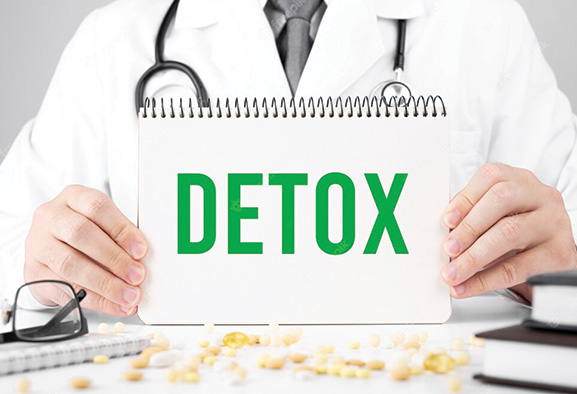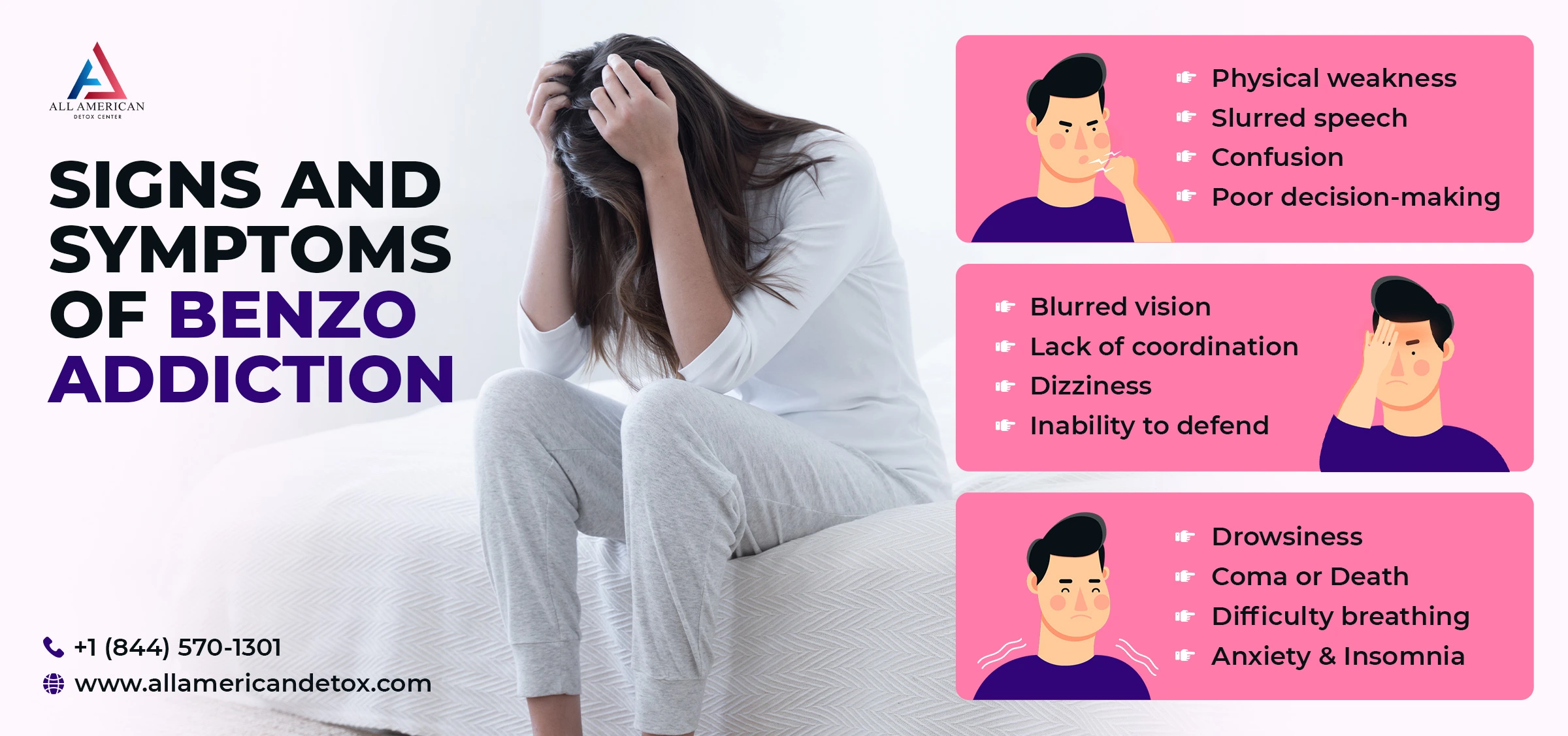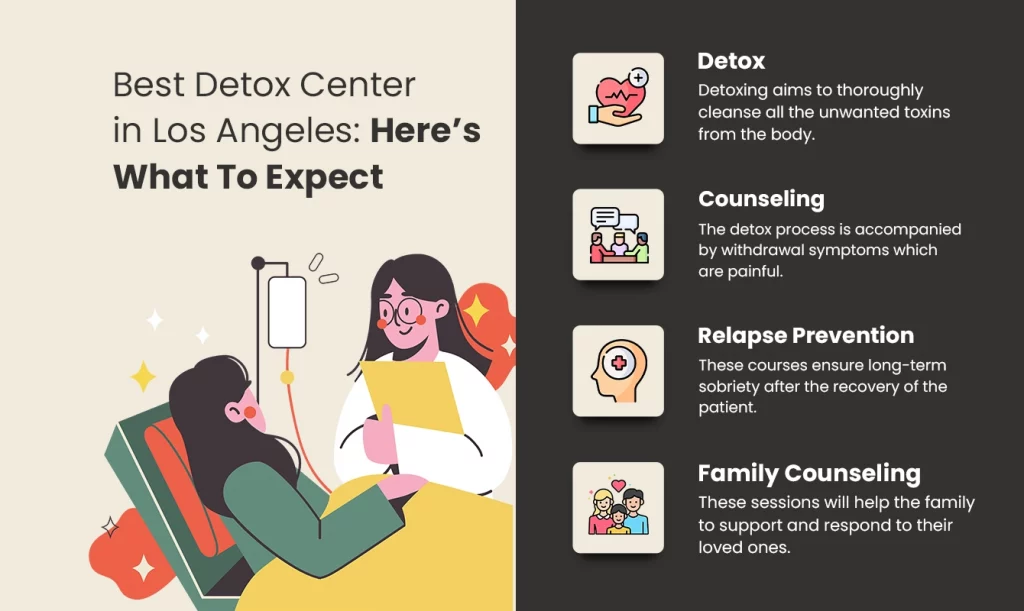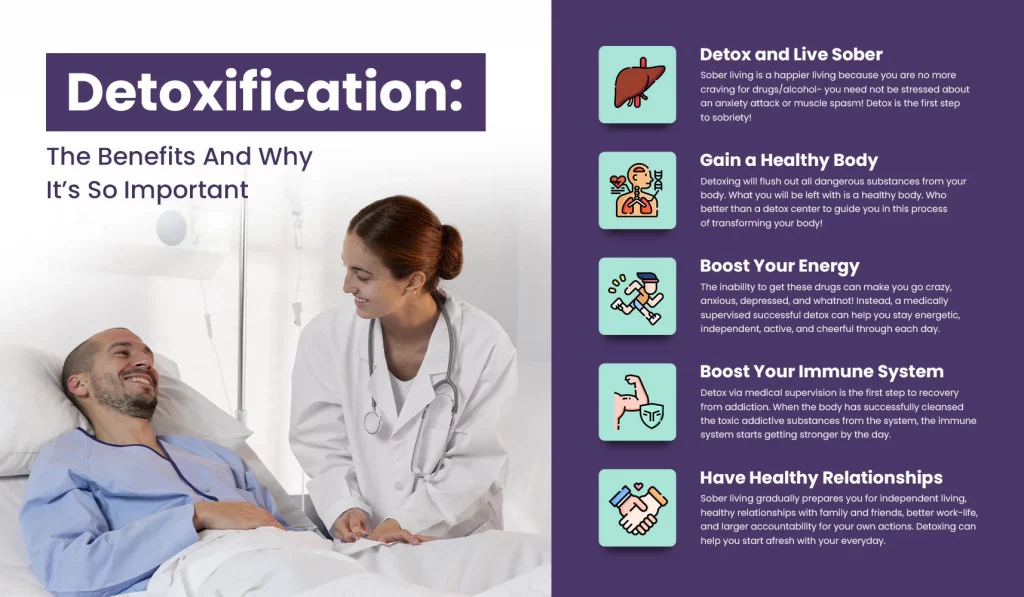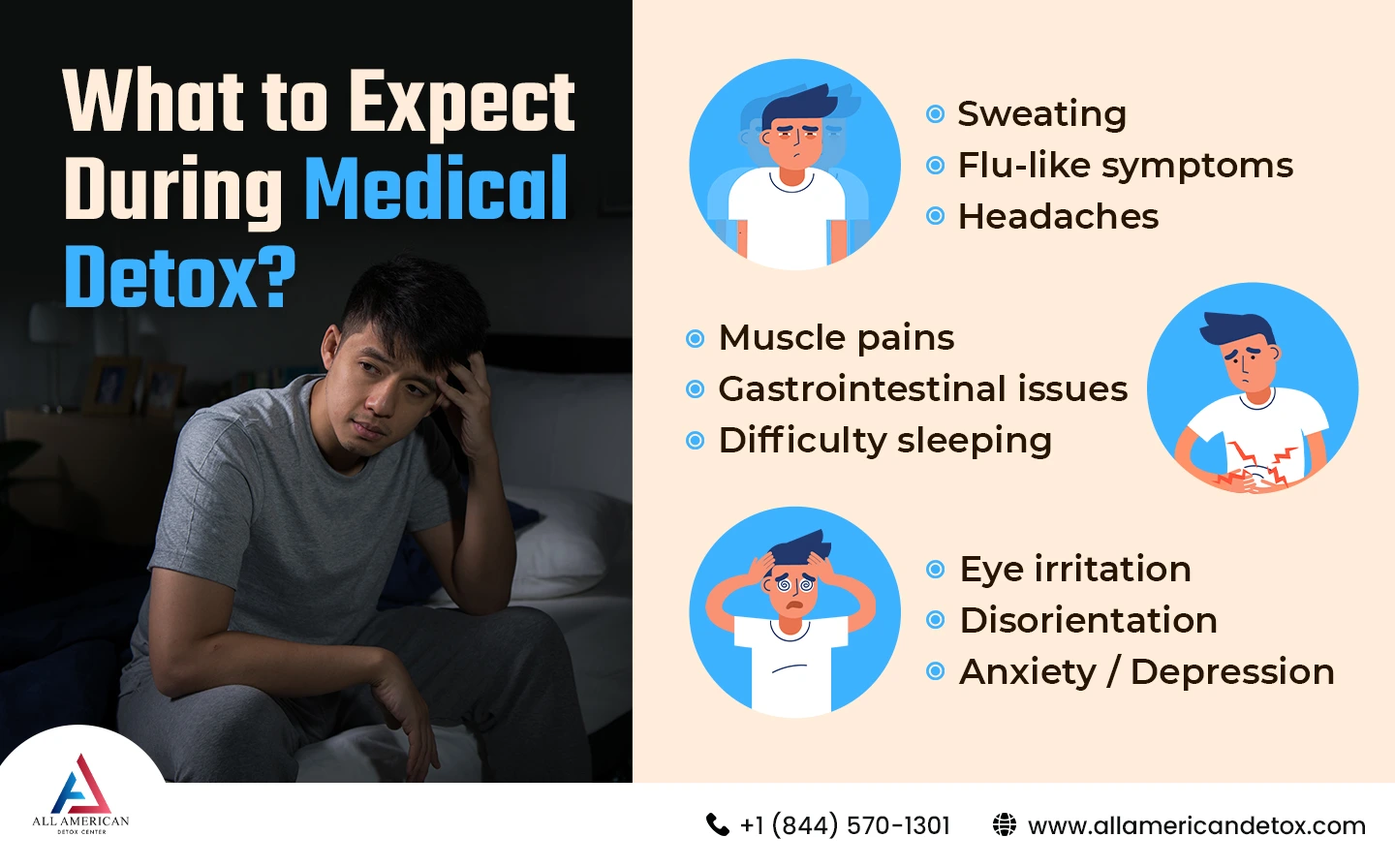In the journey of detoxification and recovery, the pathway to lasting health and wellness often encompasses more than just medical treatment and counseling. One vital, yet sometimes overlooked, component is exercise. Physical activity plays a significant role in the detox and recovery process, offering a multitude of benefits that extend beyond the gym. At All American Detox, we recognize the transformative power of exercise as an integral part of a holistic recovery program.
Our approach goes beyond traditional detox methods, incorporating tailored exercise regimens designed to meet the unique needs of each individual. Whether it’s boosting physical health, enhancing mental well-being, or fortifying the immune system, exercise serves as a cornerstone of our comprehensive treatment plans. In this article, we will explore the myriad benefits of exercise in detox and recovery. We will delve into the various types of exercises suitable for those undergoing detoxification, and how All American Detox integrates these practices into personalized fitness plans, group sessions, and ongoing support. By understanding the critical role of exercise, we can better appreciate its importance in achieving long-term recovery and optimal health.
Benefits of Exercise in Detox
When navigating the challenging journey of detoxification and recovery, incorporating exercise into your routine can be transformative. Exercise offers a multitude of benefits that can significantly enhance the detox process and contribute to long-term recovery. These benefits can be broadly categorized into physical benefits, mental health improvements, and immune system boosts.
Physical Benefits
Exercise plays a crucial role in mitigating the physical discomforts associated with detoxification. As the body works to rid itself of toxins, engaging in physical activity can enhance this process by increasing circulation, promoting lymphatic drainage, and encouraging the expulsion of toxins through sweat. Regular exercise also helps to rebuild muscle strength and stamina, which are often depleted during substance abuse.
Cardiovascular health is another key area where exercise makes a substantial impact. Activities such as running, swimming, or cycling can improve heart health, lower blood pressure, and increase lung capacity. This is particularly beneficial during detox when the body is under significant stress. Moreover, exercise supports metabolic health by regulating blood sugar levels and improving digestive function, which are often disrupted during substance dependency.
Mental Health Improvements
The psychological benefits of exercise during detoxification cannot be overstated. Physical activity is well-documented to release endorphins, the body’s natural mood elevators. These chemicals can help alleviate the mood swings, anxiety, and depression commonly experienced during detox. Regular exercise also promotes better sleep patterns, which are often disrupted during the initial phases of recovery.
Engaging in physical activity provides a sense of accomplishment and purpose, which can counteract the feelings of helplessness and low self-worth that many individuals face during detox. Exercise routines can instill a sense of structure and discipline, aiding in the development of healthy habits and routines that support long-term recovery.
Boosting Immune System
A strong immune system is essential for anyone undergoing detox, as the body is in a vulnerable state while expelling harmful substances. Regular exercise has been shown to enhance immune function by promoting the circulation of immune cells, reducing inflammation, and supporting the body’s natural defense mechanisms. This heightened immune response can help prevent infections and other illnesses that could complicate the detox process.
Furthermore, exercise can improve overall vitality and energy levels, which are often compromised during detoxification. This boost in energy can make it easier to engage in other essential recovery activities, such as attending therapy sessions and participating in support groups.
In summary, incorporating exercise into a detox program offers numerous benefits that support both physical and mental well-being. It aids in the detoxification process, enhances mental health, and strengthens the immune system, all of which are critical for successful recovery. At All American Detox, these benefits are harnessed through carefully designed exercise programs tailored to meet the unique needs of each individual on their journey to sobriety.
Types of Exercise Suitable for Detox
Detoxification is a complex process that requires a multifaceted approach to be truly effective. Exercise plays a crucial role in aiding the detox process, and choosing the right type of exercise can significantly enhance the benefits. Here, we delve into the various types of exercise that are particularly suitable for detox and recovery.
Aerobic Exercises
Aerobic exercises, also known as cardiovascular exercises, are essential for improving cardiovascular health and enhancing overall endurance. Activities such as walking, jogging, cycling, and swimming increase heart rate and promote better circulation. This improved blood flow aids in the efficient removal of toxins from the body.
Moreover, aerobic exercises stimulate sweating, another natural detoxification process. Sweat glands help expel toxins through the skin, contributing to a cleaner internal system. Regular aerobic exercise also helps to manage weight, regulate blood sugar levels, and improve lung capacity—all of which are beneficial during the detox phase.
Strength Training
While often overlooked in detox programs, strength training is equally important. This form of exercise involves resistance activities like weightlifting, bodyweight exercises, and resistance band workouts. Strength training helps build muscle mass, which in turn increases metabolism. A higher metabolic rate means the body can process and eliminate toxins more efficiently.
Additionally, strength training can improve bone density, joint flexibility, and overall physical strength. These benefits are particularly valuable for individuals in recovery, as they often face muscle atrophy and weakness due to prolonged periods of inactivity or poor nutrition.
Mind-Body Exercises
Mind-body exercises, such as yoga, Pilates, and Tai Chi, offer a holistic approach to detox and recovery. These practices focus on the integration of mental and physical health, promoting overall well-being. Yoga, for instance, combines physical postures with breath control and meditation, helping to reduce stress and improve mental clarity.
Mind-body exercises are particularly effective in enhancing the parasympathetic nervous system, which governs the body’s relaxation responses. This can significantly reduce levels of cortisol, the stress hormone, thereby aiding in mental detoxification. The emphasis on controlled breathing and mindful movement also helps in improving lung capacity, flexibility, and core strength.
Incorporating these types of exercises into a detox program not only aids in the physical elimination of toxins but also supports mental and emotional recovery. By combining aerobic exercises, strength training, and mind-body practices, individuals can achieve a balanced and comprehensive approach to detoxification and overall health.

Exercise Programs at All American Detox
At All American Detox, we recognize the invaluable role that exercise plays in the detox and recovery process. Our comprehensive exercise programs are carefully designed to cater to the unique needs of individuals on their journey to sobriety. By integrating physical activity into our treatment plans, we aim to enhance the overall well-being of our clients, supporting both their physical and mental health. Our exercise programs are structured around three core components: personalized fitness plans, group sessions, and continuous monitoring and support.
Personalized Fitness Plans
Understanding that each individual’s path to recovery is unique, All American Detox offers personalized fitness plans tailored to meet the specific needs and goals of our clients. Our certified fitness trainers and medical professionals work closely with each client to develop a customized exercise regimen that aligns with their health status, fitness level, and personal preferences. These personalized plans ensure that clients engage in physical activities that are safe, effective, and enjoyable, ultimately fostering a sustainable and positive relationship with exercise.
Group Sessions
In addition to personalized fitness plans, All American Detox provides group exercise sessions that promote camaraderie and mutual support among clients. These sessions are designed to create a sense of community and shared purpose, which can be incredibly motivating during the recovery process. Group exercises such as yoga, Pilates, and group fitness classes offer a social component that helps clients build connections and find encouragement from peers who are on similar journeys. The sense of belonging and support derived from these group activities can significantly enhance the overall recovery experience.
Monitoring and Support
To ensure the safety and effectiveness of our exercise programs, All American Detox offers continuous monitoring and support. Our team of healthcare professionals regularly assesses each client’s progress and adjusts their fitness plans as needed. This ongoing evaluation helps to address any emerging health concerns and ensures that clients are reaping the maximum benefits from their exercise routines. Additionally, our staff provides emotional and motivational support, helping clients overcome any challenges or setbacks they may encounter along the way.
In summary, the exercise programs at All American Detox are designed to provide holistic support to individuals in detox and recovery. By offering personalized fitness plans, fostering a sense of community through group sessions, and ensuring continuous monitoring and support, we strive to empower our clients to achieve lasting health and sobriety.
The Role of Exercise in Detox and Recovery
In conclusion, the integration of exercise into detox and recovery programs, such as those offered by All American Detox, plays a pivotal role in facilitating both physical and mental healing. The numerous benefits of exercise, including enhanced physical health, improved mental well-being, and a strengthened immune system, underscore its importance in the journey towards recovery. By engaging in a variety of exercise types—ranging from aerobic activities and strength training to mind-body exercises—individuals can find a balanced approach that suits their specific needs and recovery goals.
All American Detox stands out in its commitment to holistic recovery by providing personalized fitness plans, encouraging participation in group sessions, and offering continuous monitoring and support. These tailored programs ensure that each person receives the appropriate level of care and guidance, further enhancing the effectiveness of their detox and recovery process.
Ultimately, exercise is not just a complementary activity but a cornerstone of a successful detox and recovery regimen. By fostering a healthier body and mind, it equips individuals with the resilience and strength needed to overcome addiction and embrace a healthier, more fulfilling life. All American Detox exemplifies this holistic approach, supporting individuals every step of the way on their path to recovery.
FAQs
1. How does exercise contribute to the detox and recovery process? Exercise plays a crucial role in detox and recovery by promoting physical and mental well-being. It can help reduce stress, improve mood, and support the body’s natural detoxification processes.
2. What types of exercise are beneficial for individuals undergoing detox and recovery? A combination of aerobic exercises, strength training, yoga, and mindfulness practices can be beneficial for individuals in detox and recovery. These exercises promote physical strength, flexibility, and mental resilience.
3. Can regular exercise help manage withdrawal symptoms during detox? Yes, regular exercise can help manage withdrawal symptoms by releasing endorphins, which can alleviate stress, anxiety, and depression commonly experienced during detox.
4. How can exercise support long-term recovery after completing a detox program? Regular exercise supports long-term recovery by reducing the risk of relapse, promoting a healthy lifestyle, and improving overall physical and mental health.
5. Are there specific exercises that can aid in the detoxification process? While exercise itself does not directly detoxify the body, activities that induce sweating such as cardio workouts, saunas, and hot yoga can support the elimination of toxins through the skin.
6. How can I incorporate exercise into my daily routine during detox and recovery? Start with light activities such as walking, stretching, or gentle yoga, and gradually increase the intensity of your workouts as your energy levels improve. It’s important to listen to your body and not overexert yourself during this time.
7. Can exercise help improve sleep patterns during detox and recovery? Yes, regular exercise can help regulate sleep patterns, improve sleep quality, and reduce insomnia, which are common challenges during detox and recovery.
8. What role does All American Detox play in integrating exercise into the detox and recovery process? At All American Detox, we recognize the importance of physical activity in the detox and recovery process. Our programs include personalized exercise plans tailored to the individual’s needs and fitness levels.
9. Are there exercises that can help individuals manage stress and anxiety during detox and recovery? Mindfulness practices such as yoga, tai chi, and meditation, as well as aerobic exercises like running or swimming, can help individuals manage stress and anxiety during detox and recovery.
10. Can I continue to engage in exercise after completing my detox and recovery program? Absolutely, continuing to incorporate regular exercise into your routine after completing the program is crucial for maintaining overall health and supporting long-term recovery.




